BC Bud
Farm-to-Table Cannabis Coming to Victoria – Cannabis | Weed | Marijuana
Published
2 years agoon
By
admin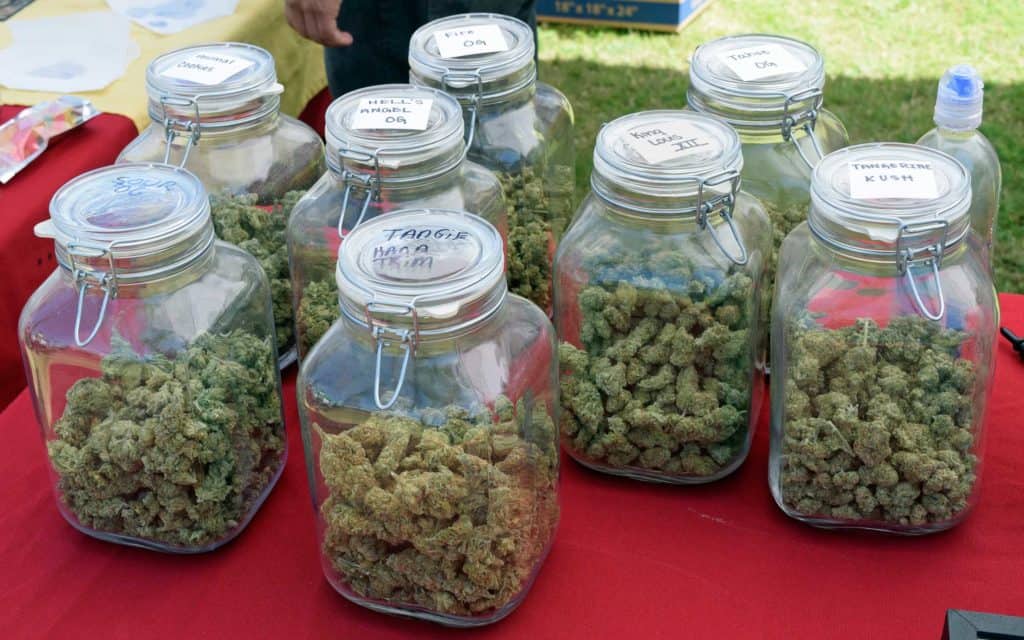
Last Thursday, the City of Victoria approved rezoning for its first farm-to-table cannabis operation. A majority of the council voted to amend bylaws so one facility can house four different Health Canada licenses.
The Victoria Cannabis Company will have a nursery, micro-cultivation, processing and sales all in one spot, located at 340 Mary St.
The City of Victoria approved the rezoning despite another cannabis retailer within 400 metres. But Councillor Jeremy Caradonna justified bending the rules since a farm-to-table site is “substantially different” from a regular cannabis retailer.
“I do think this is going to be a game changer for Vic West,” he told the Times Colonist. “I am convinced that it will bring a lot of new business into the neighbourhood. In fact, my hope is that a rising tide lifts all ships.”
That is a great sentiment, but eight years too late.
Too Little Too Late?
Caradonna championed the farm-to-table cannabis operation coming to Victoria. “You can see the production facility, you can meet the grower,” he said.
Councillor Chris Coleman compared Victoria’s farm-to-table cannabis to the early days of craft beer.
“I would remind people to look back to 1980 when there were no brew pubs in the province of British Columbia, and now we see a vibrant industry on Vancouver Island that’s known as the Ale Trail, but it’s based on craft breweries,” he said. “That’s exactly where this is going to go.”
We agree. A vibrant craft cannabis industry is precisely the direction the province should be heading in. The problem is, if B.C. took this approach back in 2015, then we’d be there already.
When Justin Trudeau and the Liberals pledged to “legalize, regulate, and restrict” cannabis, B.C. politicians should have been asking: what do you mean by regulate and restrict?
Instead, they parroted nonsense about “protecting the children” and “eliminating organized crime.” As we wrote ad nauseam, “organized crime” was pure semantics.
Most of British Columbia’s “illegal” cannabis trade was (and still is) peaceful individuals who love the herb. They love consuming it, growing it, and sharing it. They have no incentive to engage in other illegal activities or poison their customers.
But no B.C. politician – even among the Greens – came to B.C. Bud’s defence. Eight years later, the industry still struggles.
The fact that Victoria is getting its first farm-to-table cannabis operation five years after legalization is telling.
If you put the government in charge of the Sahara, within a few years, there’d be a shortage of sand.
Farm-to-Table Cannabis Coming to Victoria
Why didn’t Victoria councillors come to B.C. Bud’s defence during the critical 2015-2018 pre-legalization years?
Why didn’t the government of British Columbia create a farm-gate licence until 2020?
Stigma is one primary reason. Even with legal cannabis, two Victoria councillors opposed the farm-to-table cannabis operation. They said it would negatively impact nearby residents.
In other words, we’re pro-cannabis, just not in our backyard.
Likewise, B.C.’s NDP government lacks a spine. They effectively handed over their multi-billion dollar industry to Ottawa and the Laurentian Elites.
This would be like if Alberta handed over ownership and control of its oil sands to Ottawa cronies.
In fact, it was Señor Trudeau who attempted to nationalize Canada’s oil and gas sectors. Little surprise that the Little Potato followed in his father’s footsteps with B.C. Bud.
Unfortunately, Trudeau Jr. got away with it.
And now this is the result. Authorities target Canada’s oldest compassion club as a criminal element. Thousands of B.C. Bud farmers remain underground or partially licensed as “micro-grows.”
Meanwhile, Victoria’s authorities rezone and flaunt their own rules to accommodate a private, taxpaying farm-to-table cannabis operator.
We’ve got nothing against the Victoria Cannabis Company and wish them all the best. But let’s recognize that the game’s rules are stacked against some while benefiting others.
What Kind of Regulation?
A farm-to-table cannabis operator coming to Victoria is excellent news. It should have happened a while ago.
But many will say the “Wild West” of B.C. Bud doesn’t account for public health and safety, so the “Community Safety Unit” is justified in targeting them.
Historical evidence disagrees—and not just recent history. Throughout the centuries, disputes between consumers and producers, or producers and other producers, would arise and cause issues.
Fortunately, Western culture figured out how to settle disputes in ways that didn’t provoke vigilante justice or retribution. Over the years, these disputes and resolutions became known as the English, or Anglo-American, common law.
From this process came the basic rules underpinning Western civilization. These laws were procedural and settled according to the particular details of the cases.
Demagogue politicians inserted themselves in the 19th century. They made reforms in the name of the “public good.” Like, for example, undermining how courts handled pollution.
Before “democracy” showed up, Anglo-American common law considered pollution a violation of private property. I can’t dump my trash on your front lawn. But if I burn it on my property and the smoke travels across to your house?
According to 19th-century democratic politicians, that’s okay.
And now, according to 21st-century politicians, we all have to pay higher taxes and eat bugs to “solve climate change” when the problem stems from too much political interference.
They’re effectively saying, “Oh you’re greening out? Here, smoke more THC-potent bud.”
Farm-to-Table Cannabis Coming to Victoria
The fact is that we already have the rules on the books to regulate cannabis effectively.
Tort law ensures products are safe and accurately labelled. Criminal law protects against theft and property damage. Property law and contract law are fundamental to our rules-based society.
It is a typical straw man that B.C. Bud’s proponents want a “free-for-all” or some “unregulated” chaotic anarchy.
What’s impressive is that the people who make this argument, who believe we cannot self-regulate our economy, also believe that the government can regulate economies without ill effects.
It’s circular logic. “People can’t be trusted so we need a government made of people can’t be trusted so we need a government made of people can’t be trusted…”
Lao Tzu once said, “The more laws and order are made prominent, the more thieves and robbers there will be.”
And that’s certainly true in the cannabis industry, where B.C. politicians and councillors demonize one group of cannabis producers while exalting the taxable group to top-tier status.
A better approach would see cannabis liberalized. We already have a framework in place. The Anglo-American common laws are already on the books.
Anything above and beyond is a government cash grab.
You may like
-


This Wine Issue Is Becoming More Common
-
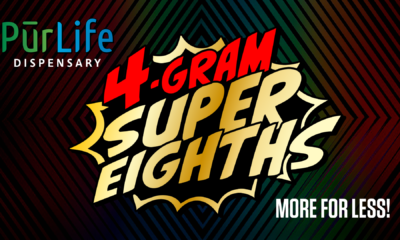

Get more for less this 420 at PurLife
-
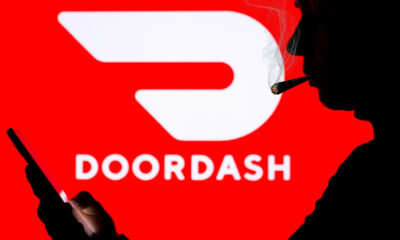

Can You Order Cannabis through DoorDash?
-
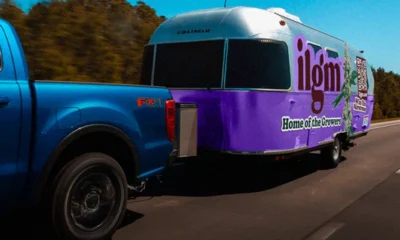

Cannabis Enthusiast-Friendy Retreats – GanjaVacations Jamaica
-


The road ahead for cannabis lending in 2025
-


Cannara Biotech Announces Appointment of Justin Cohen to Board of Directors
All about Cannabis
B.C. Court Dismisses Cannabis Retail Lawsuit – Cannabis | Weed | Marijuana
Published
2 years agoon
September 22, 2023By
admin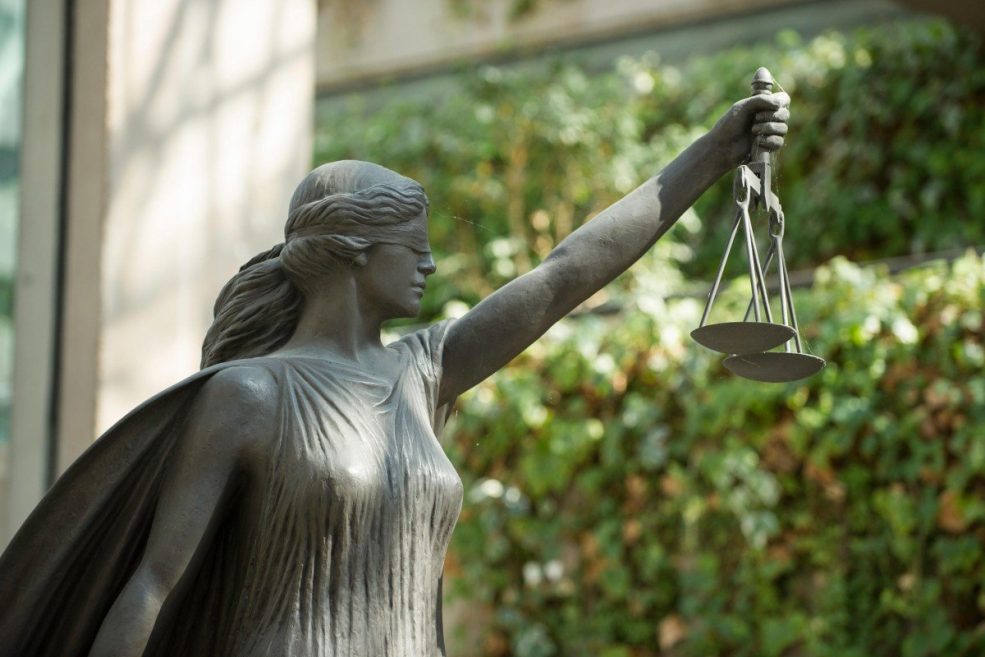
A British Columbia (B.C.) court dismissed a lawsuit from owners of licensed cannabis retail shops. Last year, this group of cannabis retailers sued the province for not enforcing cannabis regulations.
While licensed cannabis retailers jump through bureaucratic hoops and pay excessive taxes on the faulty premise that this contributes to “public health and safety,” the B.C. Bud market of “illicit” retailers doesn’t face these same hurdles.
Particularly on Indigenous Reserves, where the plaintiffs claim damages of at least $40 million in lost revenue.
Justice Basran considered whether the province owed the plaintiffs a private law duty of care in this context. The plaintiffs claimed the province committed torts of negligence and negligent misrepresentation.
But what does this mean? And was Justice Basran’s dismissal of the lawsuit justified?
Details of the Plaintiff’s (Cannabis Retail) Argument
While the cannabis retailers suing the province wished to remain anonymous, CLN uncovered who they were. Their position is understandable. The government sold them a bill of goods.
When Canada legalized cannabis, the province of B.C. effectively said, “play by the rules and you’ll profit.” The reality has been anything but.
Obviously, licensed cannabis retailers are at a competitive disadvantage vis-a-vis the unlicensed cannabis shops.
So why did Justice Basran dismiss the lawsuit?
First, let’s look at what the plaintiffs claimed in their suit. What do “torts of negligence” and “negligent misrepresentation” refer to in this context?
Tort Law
Negligence is a fundamental concept in tort law. It means a failure to exercise a degree of care reasonable people would exercise in similar circumstances.
To establish a claim of negligence, the plaintiff (in this case, a group of licensed cannabis retailers) needed to prove the following:
- That the province of B.C. owed a duty of care to the licensed cannabis retailers.
- That the province breached that duty by failing to meet the standard of care expected under the circumstances (i.e. The province’s cannabis enforcement authority should have been raiding unlicensed shops more than they were)
- That the province’s breach of duty directly caused harm or damages (i.e. Causation) to the licensed cannabis retailers
- And that these actual harms (or losses) result from the province’s breach of duty.
The plaintiffs alleged that B.C. failed to enforce cannabis regulations (specifically, the Cannabis Control and Licensing Act) on Indigenous Reserves. They claimed this negligence resulted in damages of at least $40 million.
Negligent misrepresentation is a specific type of negligence claim that arises when one party provides false or misleading information to another party, and the party receiving the information relies on it (to their detriment).
To establish negligent misrepresentation, the licensed cannabis retailers had to prove the following:
- That the province made a false statement, whether intentionally or not
- That the plaintiffs relied on this false statement
- The plaintiffs suffered financial (or other) losses from relying on this false statement.
In this case, the plaintiffs said that B.C. promised them a viable, legal, above-the-board retail cannabis industry. One way of ensuring this would be to take enforcement action against unlicensed retailers, whether on Indigenous Reserves or not.
Did the B.C. Government Owe a Duty of Care to the Cannabis Retailers?
Justice Basran considered whether the province owed the plaintiffs a private law duty of care. The B.C. government argued that it did not owe such a duty because the parties had no direct relationship.
But what does this mean?
In tort law, a “duty of care” is a legal obligation imposed on an individual (or group, entity, etc.) to exercise reasonable care and caution to prevent harm to others affected by their actions and omissions.
Of course, not all actions or omissions give rise to a duty of care. That’s where proximity comes in, which refers to the direct relationship between the parties. In this case, whether a direct connection between the province’s cannabis regulators and the cannabis retailers justifies imposing a legal duty.
Justice Basran had to determine whether the province of B.C. owed a “private law duty of care” to the cannabis retailers. Of course, B.C. argued that it did not. They argued that their duty was the “public interest,” not the economic interests of specific businesses.
Justice Basran agreed that no duty of care existed due to lack of proximity.
How Did the Court Come to this Decision?
Justice Basran dismissed the B.C. cannabis retail lawsuit based on the “plain and obvious” legal standard used when deciding to strike pleadings.
The court considered the Anns/Cooper test to determine whether a duty of care existed. This involves two stages. First, whether the harm alleged was reasonably foreseeable. And second, whether there is a close relationship between the parties (proximity).
Justice Basran found no prima facie duty of care between the province and the licensed cannabis retailers. The court argued that B.C.’s cannabis regulations do not establish a legislative intention to create such a duty.
The court also ruled that the claims made by the province (i.e. Get licensed and profit) did not create a sufficient relationship to impose a duty of care.
Suppose the court had recognized that such a duty exists. Justice Basran was concerned such a decision could result in more of these types of lawsuits where the province (and its regulators) are held liable for the economic losses of numerous businesses due to their incompetence.
Justice Basran weighed the potential negative consequences of such a decision and decided it wouldn’t be in the best interests of the legal system, taxpayers, or society as a whole to impose such a duty.
B.C. Court Dismisses Cannabis Retail Lawsuit
A B.C. court has dismissed the cannabis retail lawsuit. The decisions sound as if what’s convenient for the government overrules what’s just and fair.
Was Justice Basran’s dismissal of the lawsuit justified? Judges are, after all, only human. And there is an appeals court. So, there may be more to the case in the future.
In the meantime, to argue that judges in Canada have far too much power, that they are, in effect, legislating from the margins is considered a “far-right” viewpoint.
But there is nothing “far-right” or even “far-left” about upholding the values that underpin our rule of law.
Suppose governments can evade the consequences of their actions because of the potential cost to taxpayers or the legal system. In that case, there is no rule of law.
It’s rule by fiat masquerading as a rule of law.
All about Cannabis
B.C. Throws Money at Indigenous Cannabis Industry – Cannabis | Weed | Marijuana
Published
2 years agoon
April 26, 2023By
admin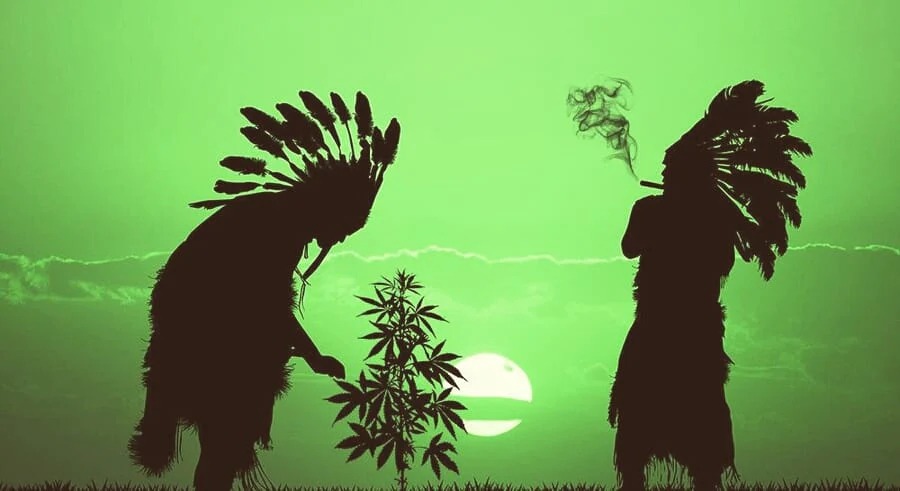
The B.C. government plans to throw $2.3 million taxpayer dollars at the province’s Indigenous cannabis industry. The announcement comes a few days after a First Nations group called for Cannabis Act reforms.
Concerning the Indigenous cannabis industry, while the B.C. government pays lip service to Indigenous sovereignty, their actions have been all over the map.
On the one hand, you’ve got legal retailers suing the government over lack of enforcement on First Nation reserves. And on the other hand, you’ve got the “Community Safety Unit” raiding peaceful Indigenous establishments.
The B.C. government has given itself more power to go after “illicit” online retailers. It has also strengthened the province’s civil forfeiture laws to target cannabis farmers specifically.
But as politicians are always prepared to do what sounds right over what works – the B.C. government is throwing $2.3 million at the Indigenous cannabis industry.
B.C. Throws Money at Indigenous Cannabis Industry
This past weekend, the B.C. government announced they would allocate $2.3 million to the B.C. Indigenous Cannabis Business Fund (ICBF). ICBF aims to increase Indigenous participation in B.C.’s cannabis industry.
But wait. Isn’t “public health” always up in arms about the alleged harms of cannabis?
The industry is subject to sin taxes and prohibition-era rules and regulations. Public health doesn’t celebrate it as the therapeutic, nontoxic medicinal flower it is.
So why would the B.C. government encourage marginalized and vulnerable populations to enter the drug industry? Why would they use taxpayer dollars to accomplish this?
Why the disconnect? Simple: like prohibition, Canadian legalization is rooted in racism.
Is the B.C. Government Racist?
The racism in prohibition is blatant: despite similar rates of use among all populations, police charge minorities with cannabis possession and trafficking at a far higher rate than “white” or fair-skinned people.
Obviously, the solution is to end prohibition and defund the police. Cannabis belongs in a free and fair market, as do policing services.
But what about the racism in legalization? If your skin is white and your background is European, getting too involved with cannabis constitutes a “disorder” or an “addiction.”
If you smoke weed every day, the way people drink coffee every morning, then public health considers this a symptom of some larger mental health issue.
But that’s if you’re in the majority European-descent ethnic group. If you’re Indigenous, there is no talk about “cannabis use disorder.” When speaking of the Indigenous cannabis industry, politicians and bureaucrats start talking about economic prosperity or business opportunities.
Why? Ethnic discrimination. Also called racism.
If you’re from Europe, the prevailing Judeo-Christian worldview tends to have a negative view of drug use. Despite the secular nature of modern Western governments, this ethos still dominates Canada’s cultural and ethical background (just look at how the state deals with gambling, sex work, or alcohol).
But if you’re Indigenous, then it’s assumed your spiritual background permits cannabis as a holy sacrament. A sort of “peace pipe” that is a fundamental part of your culture.
Like, I said: racism.
Your genetic code doesn’t determine your identity. Indigenous people can wear suits, work in a corporate office, eat avocado toast, and listen to 1970s classic rock.
Just as a “white” person can escape the rat race and join an intentional community that adheres to principles similar to many Indigenous cultures.
We’re free, independent, autonomous persons. Identifying ourselves (and others) as members of an ethnic group, first and foremost, rather than individuals, has been a regular occurrence throughout history.
It has never worked out well.
Details of the Funding
The B.C. government’s allocation of $2.3 million to the Indigenous Cannabis Business Fund (ICBF) is a one-time deal. At least for now.
According to the province, the money will go toward helping First Nations with business plans and advisory services and help cover the costs of licensing and permits. The ICBF will also provide capital to support launches and expansions of Indigenous-owned cannabis businesses.
New Relationship Trust will administer the ICBF. In a statement, the chief executive officer said, “The additional funding means unlocking more opportunities for First Nations seeking to advance their own path toward economic development in the regulated cannabis industry.”
Of course, forging their “own” path toward economic development shouldn’t involve an additional $2.3 million bailout from taxpayers. (The ICBF already received $7.5 million a few years ago).
The B.C. government could be far more effective in eliminating the required licenses and permits that drive up business costs. Reform would benefit non-Indigenous cannabis entrepreneurs as well, and it costs nothing.
Before legalization, when Vancouver had a wild-west of “illegal” dispensaries, a few groups stepped up to provide order. The idea was that they’d be private accreditation agencies.
You might have several options to buy weed. But one of the stores would have a seal of approval from an accreditation agency you know and trust. This shifts the costs of regulation from taxpayers to the business and its consumers.
It also means consumers have to make more discriminating choices—no more blind faith in the power of government bureaucracy.
We know monopolies don’t work. Only ideologues question the efficiency of markets. So why do we permit governments to monopolize regulatory services?
What do Indigenous Groups Think?
What do Indigenous groups think about the B.C. government’s plan to throw $2.3 million at the Indigenous cannabis industry?
“I commend the Province for enhancing its support of First Nations cannabis-related economic development through the ICBF,” said regional chief Terry Teegee, BC Assembly of First Nations.
Terry sees it as another example of how the B.C. government adheres to the “United Nations Declaration on the Rights of Indigenous Peoples” or UNDRIP.
But like most things from the United Nations, the devil is in the details.
For example, UNDRIP says Indigenous populations have a right to “self-determination” without clarifying what this means.
Suppose a First Nations reserve in Canada overwhelmingly supports a local secession movement. Would the federal government and First Nation groups support them? Or would their self-determination be considered an illegal act?
The UNDRIP is too ambiguous to be helpful. Either self-determination overrules national law and sovereignty (or, at the very least, competes with it on a level playing field), or, like the United Nations itself, the UNDRIP is useless.
A mere virtue signal to give Indigenous people a sense of progress. This is true even in Canada, where the Trudeau government wrote the UNDRIP into law.
Do you really think Justin believes Indigenous people have an “inherent right to self-determination, including the right of self-government”?
How Cannabis Works in B.C.
Here’s the reality: the B.C. government creates a complex regulatory system for retail, requiring capital, permits, licenses, and insider knowledge to navigate this bureaucratic nonsense.
It then raids peaceful Indigenous-owned dispensaries that have chosen not to participate in the government’s crony-capitalist system.
The B.C. government then offers other people’s money to “support” the cannabis industry they’ve made unnecessarily convoluted and expensive.
It’s like a criminal who breaks into your house, claims it’s his, then breaks your legs but pays your medical bills with money he found in your bedroom.
You don’t have to be of a particular ethnicity to see the problem.
All about Cannabis
B.C. Government to Kill B.C. Bud with Civil Forfeiture Act – Cannabis | Weed | Marijuana
Published
2 years agoon
April 25, 2023By
admin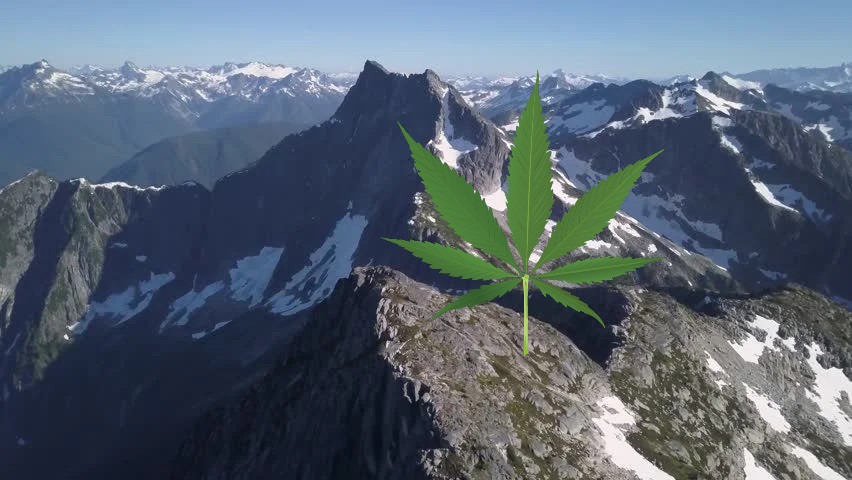
The B.C. government will soon be using a strengthened Civil Forfeiture Act to put a nail in the coffin of B.C. Bud cannabis farmers.
B.C. Bud is the colloquial term for thousands of underground cannabis farmers, vendors, and other related cannabis service providers.
Before legalization, these people were engaging in civil disobedience. If Canada ever legalized, people believed the government would bring this community into the mainstream.
What else does legalization mean?
Well, we found out. Once the Trudeau government pledged to legalize, B.C. Bud became “organized crime.” Even to the B.C. government.
Instead of embracing the economic output of B.C. Bud, the NDP BC government has done everything possible to collectivize them into a corporate-state model.
Why “Illicit” B.C. Bud is Justified
Cannabis prohibition is unjust. Full stop. Therefore, cultivating, selling, and transforming cannabis flower into consumable products is a basic human right.
Many in B.C. Bud voted for the Liberal Party in 2015. Many expected Justin Trudeau to end the crony capitalism of Stephen Harper’s medical cannabis market.
They expected legalization.
What happened instead was corporatization. You needed deep pockets to succeed. Cannabis in Canada was about selling equity, not weed. And now the failure of that system is upon us.
Meanwhile, B.C. Bud has been slowly (and reluctantly) given a path to legitimacy. It just involves a lot of money and paperwork brought to you by bureaucratic regulators.
The institution that enthusiastically threw you in a cage for cultivating a flower is the same apparatus telling you how to produce it.
Thanks to Justin Trudeau’s “public health and safety” method of legalizing cannabis (embraced by the B.C. government without question), a vast sum of the B.C. Bud’s community remains locked out of the legal regime.
They either have to make unrealistic sacrifices to their current business model or raise additional capital to satisfy the demands of government bureaucrats.
(This latter point of requiring a certain amount of capital to be considered legitimate inflicts many industries. It is one of many ways Canada’s “civil servants” ensure the rich get wealthier at the expense of the middle class and the poor.)
Instead of trying to work with B.C. Bud, the NDP BC Government has been out for blood. First, by establishing the “Community Safety Unit,” which has threatened and raided longstanding, respected community dispensaries.
And now the B.C. government wants to kill B.C. Bud with Bill 21. The Civil Forfeiture Amendment Act of 2023.
B.C. Government to Kill B.C. Bud with Civil Forfeiture Act
Civil forfeiture is when governments seize property and other assets from individuals suspected of committing a crime. Its origins date back to the 1980s in the United States as an attempt to reduce organized crime.
Of course, organized crime got its big break with alcohol prohibition.
Traditionally, in the English common law system that the U.S. and Canada adhere to, asset forfeiture is a power that belongs to the criminal courts.
These courts require proof beyond a reasonable doubt—another example of how a decentralized network of courts and legal professionals secures our rights.
Consider the legislative response.
Since clever criminals can successfully conceal asset ownership, governments have reacted with civil forfeiture. Namely, undertaking civil action against individuals and entities suspected of being involved with criminal activity.
This means allowing the government to seize property through civil courts instead of criminal courts. Civil forfeiture shifts the burden of proof from “beyond a reasonable doubt” to a “balance of probabilities.”
Instead of providing hard evidence, governments can confiscate assets based on “reasonable suspicion.”
Using civil courts in this matter is antithetical to our common law traditions and concept of liberty.
Suppose the B.C. government were to accuse you of purchasing a home or a car from proceeds you made selling cannabis (that is, selling cannabis without your proper government papers).
In a criminal trial, you’re not proving your innocence. You’re presumed innocent unless proven guilty beyond a reasonable doubt.
In the civil forfeiture process, the state requires you to prove that you derived the assets in question through legal and legitimate means.
It flips the entire “innocent until proven guilty” concept on its head.
How B.C. Will Use Civil Forfeiture Act To Kill B.C. Bud
The B.C. government’s amendments to the Civil Forfeiture Act will kill B.C. Bud.
Expected to pass its Third Reading and receive Royal Assent, the propaganda is about “making gang life unprofitable.”
Concerning cannabis, the amendments include invoking civil forfeiture for having 20 or more cannabis plants.
(Technically, five times the legal limit. So if you have a medical licence for 20 plants, then producing 100 will see your assets taken in civil court).
As part of the “let’s kill B.C. Bud with civil forfeiture” plan is the creation of “unexplained wealth orders,” or UWOs. UWOs streamline the process so the government can more effectively demand how you acquired your assets if they suspect you of being part of the B.C. Bud market.
The government calls it a “powerful tool” to help undermine money-laundering techniques such as “hiding assets with family members.”
Bill 21 will also eliminate limitation periods, make it easier to target financed vehicles and access information from private bodies, like real estate boards.
Of course, the B.C. government is going after all organized crime, not just cannabis, which is a little too late, as anyone familiar with B.C.’s casinos knows.
But in case you think I’m being hyperbolic, here is a direct quote from the B.C. government media release:
The amendments are based on recommendations from the Cullen Commission of Inquiry into Money Laundering in British Columbia, which was released in June 2022. Other amendments include… targeting the illegal cannabis market.
What About First Nations?
B.C.’s Public Health and Safety Minister, Mike Farnworth, debated with the opposition’s shadow minister in the provincial house. Farnworth said the new rules won’t apply to First Nations land.
Of course, Farnworth can’t be trusted on this, as he also said the same thing about CSU raids. But, as First Nation lands are federally controlled, provincial civil forfeiture rules can’t apply.
However, if police suspect a First Nations community is illegally growing cannabis, then they can isolate the individuals on the Reserve. As soon as a community member leaves in a vehicle and crosses into B.C. territory, police can grab them under civil forfeiture laws.
First Nations cannabis cultivation has been controversial in B.C. A group of legal retailers are suing the provincial government over, what they argue, is a lack of proper enforcement.
On the other hand, First Nation groups say they have intrinsic rights to the land and its resources, including cannabis cultivation.
Many credit B.C.’s First Nations for keeping the spirit of B.C. Bud alive after eight years of systemic efforts by the federal and provincial governments to eliminate the culture.
Why Does the B.C. NDP Hate B.C. Bud?
You’d think a left-wing party like the NDP would support a working and middle-class struggle against the corporatization of a natural herb.
But, then, again, the NDP parties of today are not like the ones of yesteryear.
During the Great Depression, workers marched to Ottawa to protest. The RCMP stopped them in Regina. You can’t read a left-wing labour history of Canada without the “On-to-Ottawa Trek” taking up at least an entire chapter.
But in 2022, when a similar struggle broke out? When working truckers drove their rigs to Ottawa? The leader of the federal NDP called them racists and accused them of arson and violence.
Meanwhile, B.C.’s NDP government strengthen civil forfeiture laws to kill B.C. Bud. They’ve also empowered their extrajudicial CSU to target online cannabis retailers (the ones government bureaucrats haven’t arbitrarily approved).
Public health busybodies always say, “Today’s cannabis isn’t like your grandparents’.” Likewise, the NDP of today is not the NDP of your grandparents’.
A proper, left-wing party would support B.C. Bud. Not group them with criminals.
An NDP that stood for the working class would have challenged Ottawa’s collectivization of B.C. Bud. They would have objected to having Health Canada – of all agencies – regulate the cultivation of an agricultural herb.
The NDP B.C. Government should repeal these civil forfeiture amendments and stand up for B.C. Bud. Not because of British Columbia’s unique cannabis culture. And not because cannabis is good for the economy, environment, or health care.
But because it’s the right thing to do. Cannabis belongs in a free and fair market. The only role governments have to play is keeping it out of the criminal code.

This Wine Issue Is Becoming More Common

Get more for less this 420 at PurLife

Can You Order Cannabis through DoorDash?

Cannabis Enthusiast-Friendy Retreats – GanjaVacations Jamaica

The road ahead for cannabis lending in 2025

Cannara Biotech Announces Appointment of Justin Cohen to Board of Directors

Can Marijuana Help Cholesterol – The Fresh Toast

Safe Cannabis Consumption During Wildfire Season

Food Asphyxiation Is Way More Dangerous Than Cannabis

Outdoor Marijuana Grows Are Better All The Way Around

Distressed Cannabis Business Takeaways – Canna Law Blog™

United States: Alex Malyshev And Melinda Fellner Discuss The Intersection Of Tax And Cannabis In New Video Series – Part VI: Licensing (Video)

What you Need to Know

Drug Testing for Marijuana – The Joint Blog

NCIA Write About Their Equity Scholarship Program

It has been a wild news week – here’s how CBD and weed can help you relax

Cannabis, alcohol firm SNDL loses CA$372.4 million in 2022

A new April 20 cannabis contest includes a $40,000 purse

Your Go-To Source for Cannabis Logos and Designs

UArizona launches online cannabis compliance online course
Trending
-

 Cannabis News2 years ago
Cannabis News2 years agoDistressed Cannabis Business Takeaways – Canna Law Blog™
-

 One-Hit Wonders2 years ago
One-Hit Wonders2 years agoUnited States: Alex Malyshev And Melinda Fellner Discuss The Intersection Of Tax And Cannabis In New Video Series – Part VI: Licensing (Video)
-

 Cannabis 1012 years ago
Cannabis 1012 years agoWhat you Need to Know
-

 drug testing1 year ago
drug testing1 year agoDrug Testing for Marijuana – The Joint Blog
-

 Education2 years ago
Education2 years agoNCIA Write About Their Equity Scholarship Program
-

 Cannabis2 years ago
Cannabis2 years agoIt has been a wild news week – here’s how CBD and weed can help you relax
-

 Marijuana Business Daily2 years ago
Marijuana Business Daily2 years agoCannabis, alcohol firm SNDL loses CA$372.4 million in 2022
-

 California2 years ago
California2 years agoA new April 20 cannabis contest includes a $40,000 purse





















